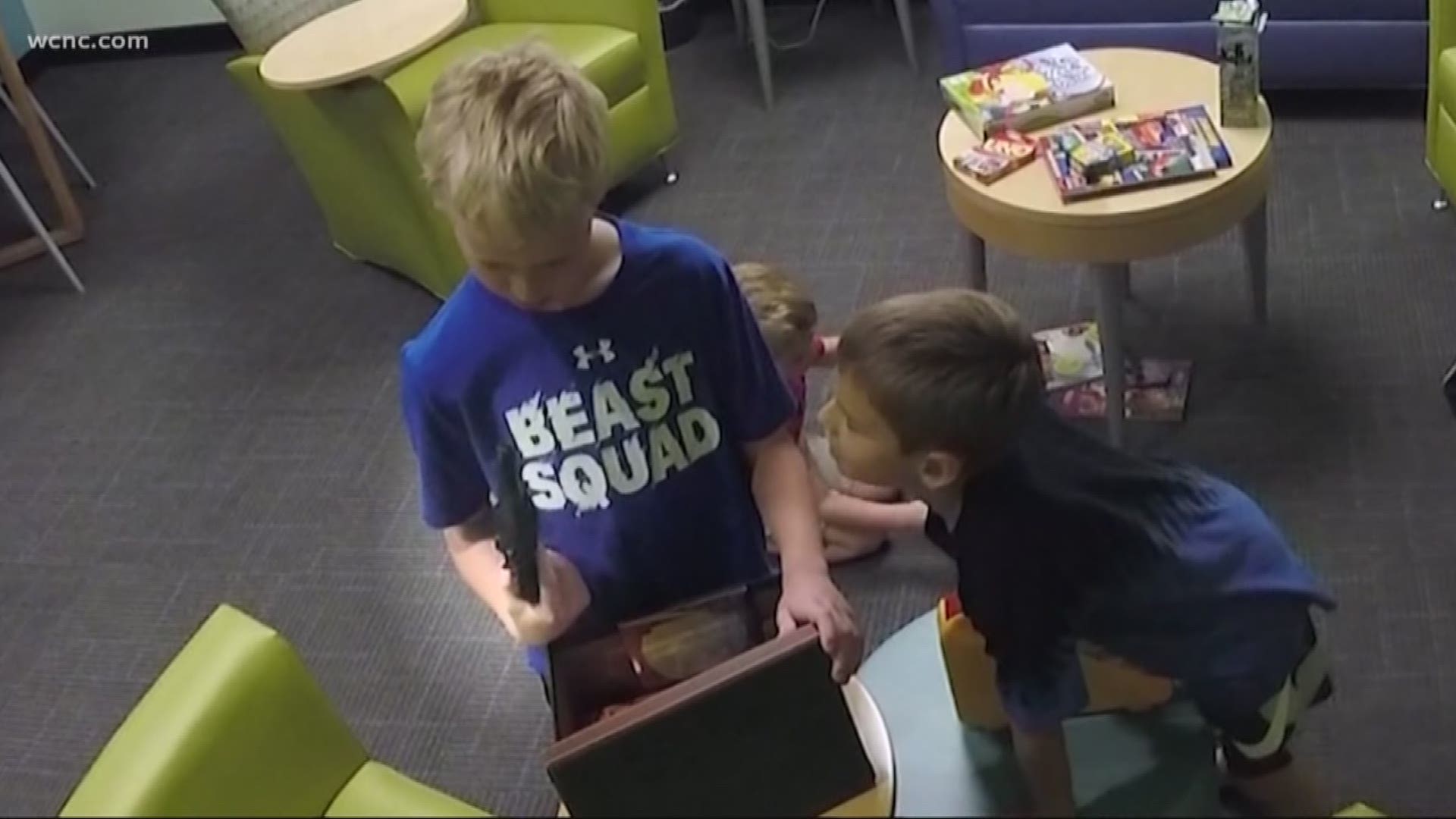CHARLOTTE, N.C. — Every day, eight children are accidentally shot with unsecured firearms in the home.
In North Carolina, about 40 percent of residents own firearms. Half of them admit they don't lock them up. And of those, 60 percent are parents.
The North Carolina Child Fatality Task Force is pushing state lawmakers to fund a new statewide firearm safety initiative focusing on proper storage. We checked out a pilot program that could expand nationally and shows the reality of the problem.
It's the kind of thing that keeps parents awake at night: Kids playing with guns. But this isn't your typical gun safety program.
“This is all about safety; it’s not political,” explained Dr. Daniel Guzman.
Dr. Guzman is an emergency room physician who got tired of seeing children end up on his operating table with accidental gun injuries.
“A lot of what we hear from parents is I didn’t think it was going to be me. I didn't see this coming,” he said.
Dr. Guzman developed the Aim for Safety program at Cook Children's Hospital in Fort Worth, Texas.
“What we have done is we have placed three decommissioned firearms in a lifelike situation,” he explained to the parents in the room.
The guns are hidden in a purse, a backpack, and a non-descript box, then placed around nearby toys. Cameras are hidden around the room.
Parents know their kids are about to be tested. They'll be watching nearby to see if their children do as they've been taught and follow proper procedure:
- Stop
- Don’t touch
- Run and tell an adult
It doesn't take long for a brother and sister to find a gun. They put it back and move on.
“One misstep and we have them in our ER,” said Dr. Guzman.
Then they find another; this time, they tell someone.
“I think we feel pretty good the fact that they at least say something. It took them a minute, but at least they did say something,” said dad Paul Porras.
Mom felt the same.
“Working here, trauma group, ER, seeing the bad effects that kids can have with guns, I was extremely nervous to see what they would do,” said mom Elise Porras. “I’m still nervous but glad that at least when they saw the guns, they recognized it and did get help.”
It’s a nerve-wracking experience for parents, but sometimes, it’s proof kids don't always do what you tell them.
The Hamner brothers were also taught about gun safety. But that didn't stop Jackson from picking up the gun and pointing it.
“Man, he just looked down the barrel of the gun. We have totally said not to do that,” said his father.
Dr. Guzman said looking down the barrel is a typical reaction.
“The curious nature of children. Their cognitive ability is not there yet, and it takes a long time for that to happen. Early adult before you see that change,” he said.
Sarah Peterson and Paige Charbonnet's sons are friends. Like 93 percent of the other kids who have been through the program, they, too, found the gun.
“I was a little nervous ‘cause we don't have guns in our house, but I know several people who do,” said Peterson.
In this case, the boys turned in the gun.
“I’m very proud of him that he was able to identify, picked up the bad and handed it to a lady,” Peterson continued.
Charbonnet promised to keep having conversations about guns with her son.
“You don’t know what to expect. I mean, they are little boys playing together,” Charbonnet said. “You've talked about gun safety, but you never know how they are going to react.”
Other parents realized they also needed to have a conversation with their peers.
“It’s something that we need to address with our friends when they go to sleepovers and play dates and that kind of thing. Are there handguns or long guns accessible to the children?” Paul Porras reflected.
One mom admitted that talking about guns with another parent was something that never crossed her mind.
“I assumed everybody treats guns the same way. I think you have to remove the stigma to have that conversation,” said Charbonnet.
Conversations that may be difficult but necessary to save lives.
“You can’t completely gun proof children at this age no matter what you do and how comfortable you feel in what you taught them. But you can start with the parents,” Dr. Guzman said.


